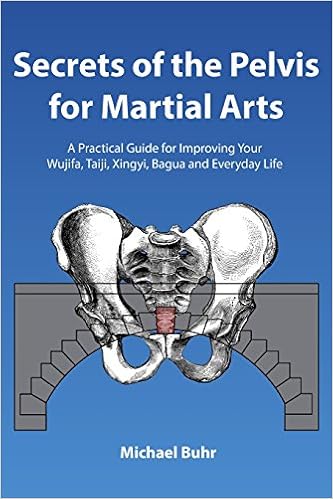* To play with and in stance means to play like a child plays - very focused, very involved, very free with what they will try. There are no "Shouldn'ts" or "Can'ts" shaping their scripts. They don't yet know "to experiment" because they haven't yet been locked in.
(I've heard it said that enlightenment is over-rated. For me, it seems like most of the work in zhan zhuang is very mundane; discovering and releasing patterns that have been laid on over the years. Sometimes, as in the most recent Wujifa class I attended, playing like a child can help find the feeling of internal connectedness; not the usual child's play.)
* If you could have any life you wanted, what would you want? Does that match what and where you are now? If not, why not?
(There are some aspects of my life I am satisfied with and some I am not. I used to complain about those unsatisfactory aspects. Then it occurred to me, living in this time and place free of external coercion, I must have wanted what I now have.
I'm discovering that it's my wanting to follow my rules that keep me locked into the aspects that are not satisfactory. In that way, I want even what I don't want. It seems twisted but grounds the responsibility in me instead of blaming some outside entity or supposing some mystical reason.)
* Notice! You can't change what you don't notice. Once you notice a behavior, an attitude, a structural position, then you have the power to change it.
(I agree that I can't change what I don't notice, but simply noticing doesn't always immediately empower me to change what I noticed. Sometimes, it can feel like the power lies with what I noticed. And then too, sometimes it can take a while to develop the physical strength or will power to effect a change.
Whether a change happens immediately like an earthquake or transitions over a longer period of time like water shaping landscape, noticing changes everything.)
* Questions reveal the level at which a person is working.
(In some Wujifa classes, we students may ask questions from our personal lives that are outside the formal Wujifa practice.
This month (September 2006), I asked about a feeling I noticed that completely blindsided me. Looking back on my notes now, I assume that whatever I went through in June 2006 must have slowly opened me to a new level of aliveness. (See my Journal Note #39.)
I could not have anticipated this feeling nor any other byproducts of practice. Over the ensuing years I have developed a little capability to play in an area of life where I previously felt completely inhibited.)
Further reading:
Introductory article explaining this "Journal Notes" series: Zhan Zhuang Training Journal
Previous article in this series: My Introduction to NLP: Journal Notes #40
Next article in this series: Changing My Diet: Journal Notes #42


The word notice... notice the depth and with the depth the weight and significance. If there isn't much depth or weight noticed or if the depth or weight and significance is "overlooked" then change may not happen.
ReplyDeleteReally notice... like a light in the dark, a becon, the light brings the ablity to really see.
Noticing the depth, the details, most people glance over get a glimps and look away and say they have noticed... really noticing... taking a real look and noticing the depth and details... this is the ground work to gongfu.
When one really notices it changes everything... when someone glances over something and look away that can be called overlooking... noticing, really noticing changes everything.
Thank you so much for your sharing... it is always helpful... I am always amazed of the processes and depth and the insight we can gain in practice of foundational skills.
Here are some ways notice is defined:
The act of noting or observing; perception or attention
Respectful attention or consideration
A formal announcement, notification, or warning, especially an announcement of one's intention to withdraw from an agreement or leave a job: gave my employer two weeks' notice; raised the price without notice
The condition of being formally warned or notified: put us on notice for chronic lateness
Point well taken! Thank you!
ReplyDeletemike